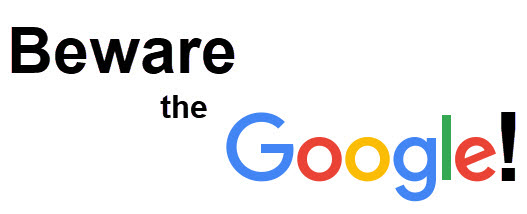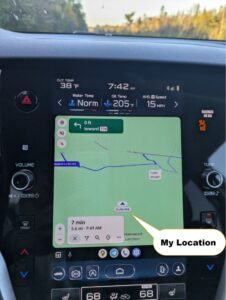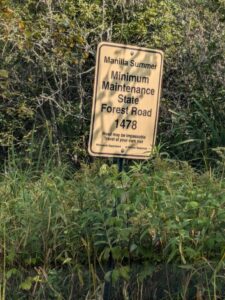I’ve been meaning to post this information for some time, but now as we head towards winter the recommendations are more important. If you like to bird remote, dirt roads MAKE CERTAIN you have local knowledge, or keep your excursions on dirt roads which have “metal country road number signs”. 
Google Maps will get you into situations that are expensive, it not dangerous. If Google Maps suggests an alternative route, be wary in the road is not paved. Most dirt roads have never been mapped out “in person” by Google, and quite often Google Maps decides an ATV (all terrain vehicle) trail is actually a road. Here is an image I took recently while birding Stony River Forest Road about 40 miles north of Two Harbors. Please note the following:
- Google knows my location but thinks I am NOT on a road (not true)
- Google’s route options start miles away from my current location and actually utilize forest roads which actually don’t exist (my local knowledge)
- Local knowledge is important
While I talked about restricting your travels to dirt roads which have “county number metal road signs”, avoid any road “like the plague” that has a sign like this one (minimum maintenance road)!
While roads of this nature can be fine, you really need local knowledge. If these roads are snow covered or wet / mucky, the danger multiplies. I actually prefer to first hike unknown roads. Hiking is how I discovered the “rock pile parking spot” 6/10 of mile from Lake County Two on US Forest Road #813 near the Greenwood Creek Bird Feeders which I maintain.
Another road to avoid as we head towards winter is the “cross-over dirt road” between Admiral and McDavitt Roads in Sax-Zim Bog. While this road is fine is good weather, it is not plowed in the winter and if you get stuck a tow will cost over $1,000. This assumes the tow truck driver is willing to venture onto this road. You will also likely have to wait for hours for a tow truck to arrive.
My final words of advice, in winter a car in northern Minnesota or other remote areas should be an “all wheel drive” car. Obviously 4-Wheel drive is even better. Before you think this advice only applies to northern Minnesota, if you like to bird and drive dirt roads in the countryside within 60 miles of a large metro area (like the Twin Cities), these problems can also happen to you!
Discover more from 365 Days of Birds
Subscribe to get the latest posts sent to your email.


Thank you for this… I have had similar experiences and it is important to keep in mind, especially in winter.
Excellent heads up, Rich. Thank you!
This is great advice and I definitely had to learn the hard way that Google maps can be dangerous and misleading. One thing I’d add is that getting recently updated paper maps is a good idea. Cross checking them against my memory has saved me some navigation headaches.